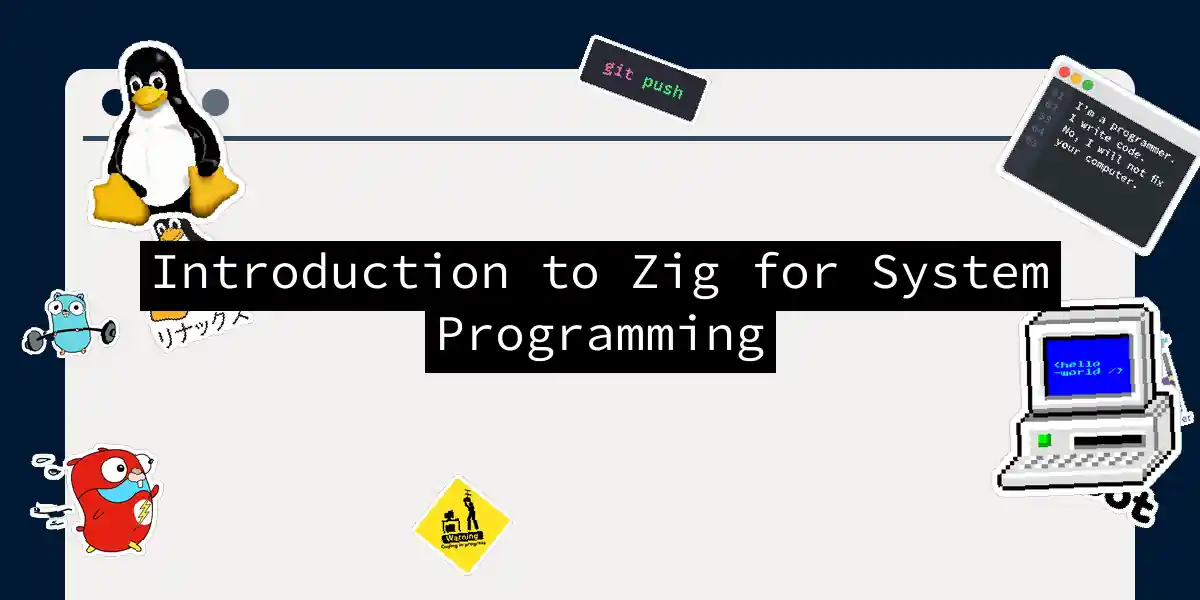
Zig or Swim: A Pragmatic Dive Into Systems Programming Without Life Jackets
Ah, Zig - the language that makes C look like it’s been napping since the 70s. Let’s roll up our sleeves and dissect this modern systems programming contender, complete with code samples that actually compile and analogies that won’t make you cringe (much). First Contact: Installing the Chainsaw Before we juggle memory pointers, let’s get our tools sharpened. Create a hello.zig file: const std = @import("std"); pub fn main() void { std....


